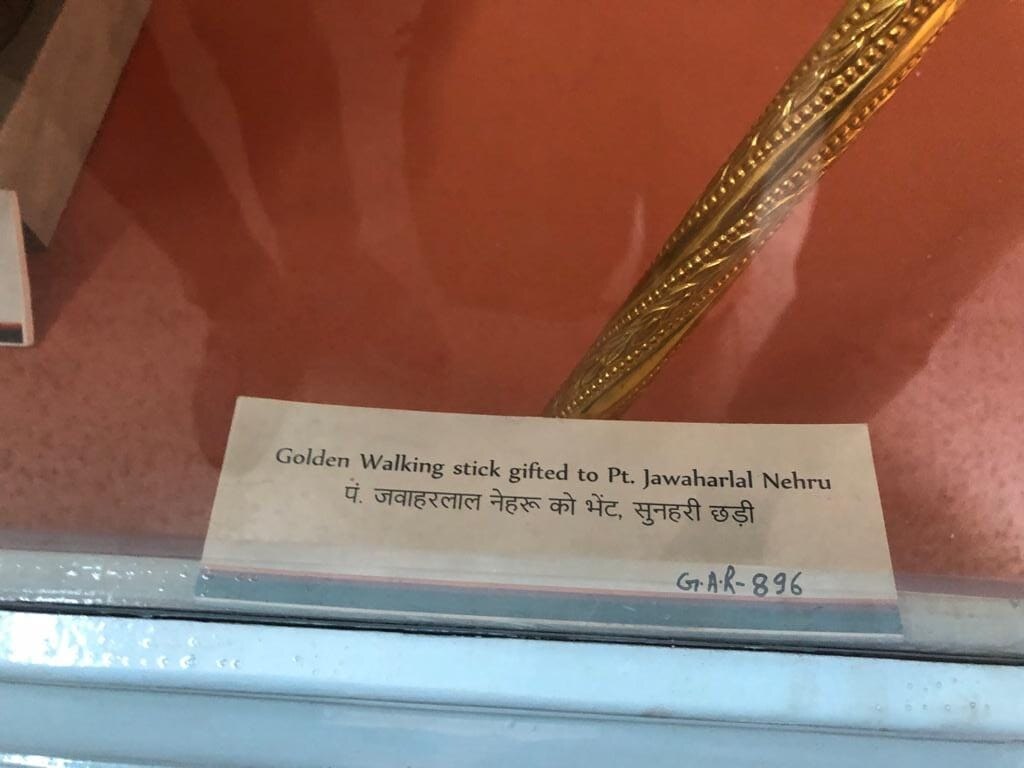


The recent sengol controversy surrounding a golden scepter gifted to Pandit Jawaharlal Nehru as a symbol of power during the transfer of power in 1947 has sparked heated debates and discussions. However, it has been revealed that even the Prime Minister's Office was unaware of the sengol until 2021. Controversy was triggered when a Samajwadi Party MP urged for its removal from the Parliament building, stating that it represented monarchy. However, editor of The Hindu, N. Ram, has pointed out that the historical sources cited by the government were questionable and that there is no evidence of any ceremony involving the sengol in 1947.
The Sengol Controversy: Unraveling the Symbolism and History
Introduction
The recent Sengol controversy in India has brought to light a historical artifact that has long been shrouded in mystery and debate. The golden scepter, gifted to Pandit Jawaharlal Nehru during the transfer of power in 1947, has been the subject of heated arguments and discussions. This article aims to delve into the background of the Sengol controversy, provide historical context, and address key FAQs related to both current and past events.
Historical Background
The Sengol, meaning "scepter" in Tamil, is believed to have been presented to Nehru by the British Crown as a symbol of authority and sovereignty. However, there is no official record of such a ceremony or gifting taking place in 1947. The controversy erupted when Samajwadi Party MP Shafiqur Rahman Barq raised objections to the Sengol being displayed in the Parliament building, arguing that it represented monarchy and violated the constitutional principles of a republic.
Government's Response
In response to the controversy, the government released historical documents that claimed to support the existence of the Sengol ceremony in 1947. However, these sources have been questioned by historians and journalists. The editor of The Hindu, N. Ram, pointed out inconsistencies in the government's narrative and argued that there was no credible evidence to back up the claim.
FAQs
1. What is the Sengol and its significance?
The Sengol is a golden scepter that was allegedly presented to Jawaharlal Nehru by the British Crown in 1947 as a symbol of power.
2. Why is there controversy around the Sengol?
The controversy arose when Samajwadi Party MP Shafiqur Rahman Barq objected to its display in the Parliament building, arguing that it represented monarchy and violated the principles of a republic.
3. What is the government's position on the Sengol?
The government claims that the Sengol was gifted to Nehru in 1947 and has released historical documents to support this narrative. However, these sources have been questioned by historians and journalists.
4. What is the opposition's stance on the controversy?
The opposition, including the editor of The Hindu, N. Ram, has raised concerns about the authenticity and reliability of the government's historical documents. They argue that there is no evidence of the Sengol ceremony in 1947.
5. What are the potential implications of the controversy?
The controversy has sparked debates about the historical accuracy of the government's account and raised questions about the role of symbolism and representation in a democratic republic.
Conclusion
The Sengol controversy has highlighted the complexities of historical interpretation and the importance of evidence-based narratives. The ongoing debate over the authenticity and significance of the Sengol is a reminder that history is often contested and subject to multiple interpretations. As the controversy continues, it remains crucial to engage in informed and respectful dialogue, grounded in verifiable facts and a deep understanding of the historical context.

On Thursday's episode of Good Morning Britain, host Ed Balls was called out on social media by viewers for interviewing Labour MP and Chancellor Rachel Reeves about her Autumn budget. Critics pointed out that Balls, who is married to Reeves' colleague Yvette Cooper and was previously a Labour Chancellor, was displaying bias in his conversation with Reeves. This isn't the first time Ed Balls has faced criticism for interviewing a family member on the show.

In the Lok Sabha, a special discussion was held to commemorate 150 years of the national song Vande Mataram, which was turned into a battleground for political agendas. Prime Minister Narendra Modi accused the Congress of splitting the song in order to appease the Muslim League and ultimately make the song unrecognizable. This sparked protest and outrage from the opposition who claimed that this discussion was simply an attempt to gain favor for the upcoming assembly elections in West Bengal. The session also saw technicalities such as the mispronunciation of the poet's name and the song itself, furthering the divisions in the political discourse.

Prime Minister Narendra Modi commends Home Minister Amit Shah for his compelling speech on the electoral process, in which he exposed the deceptive tactics of the opposition. Shah's detailed account of various aspects of the electoral process and the strength of democracy left little room for opposition's false allegations. He also called out the Congress for their failures and reiterated the importance of strong leadership for electoral success.

The Parliamentary Standing Committee on Communications and Information Technology has recommended that the government amend the penal provisions for publishing and telecasting fake news to include cancelling the accreditation of journalists or creators found guilty. The committee also stressed the need to define the term 'fake news' and incorporate suitable clauses in existing regulatory frameworks to combat misinformation and protect freedom of speech. They also suggested the implementation of fact-checking mechanisms and internal ombudsmen in media organizations to strengthen self-regulatory measures and combat the spread of fake news.

In a fiery speech on Wednesday, Union Home Minister Amit Shah accused the Opposition Congress of colluding with infiltrators for electoral gain. Shah alleged that incidents of 'vote chori' have occurred in the past, including during the election of prime minister Jawaharlal Nehru despite Sardar Patel receiving majority votes. He also responded to Rahul Gandhi's accusations of 'vote chori' by challenging the Congress leader to a debate. The debate comes as the government initiates a Special Summary Revision of electoral rolls to remove illegal infiltrators.

Union Home Minister Amit Shah delivered a passionate speech in Parliament, targeting the issue of illegal infiltration and accusing the opposition of playing vote bank politics. He emphatically declared the government's policy on illegal residents and intruders: "detect, delete, and deport". Shah also attacked the Congress and the Gandhi family for their alleged history of electoral theft. This led to a heated exchange with Leader of the Opposition Rahul Gandhi, who has been consistently questioning the fairness of elections and the integrity of institutions.

The controversial Chief Election Commissioner and Other Election Commissioners (Appointment, Conditions of Service and Term of Office) Act, introduced in 2023, has garnered criticism from opposition and civil society voices for allowing the Executive to control appointments to the Election Commission of India (ECI). Against this backdrop, Leader of the Opposition Rahul Gandhi accused the ECI of colluding with those in power and warned officials of retrospective action. This move follows a 2023 law which grants ECI officials immunity for actions taken while in power, leading to concerns about the impartiality of the electoral process.

The Lok Sabha witnessed a dramatic exchange between Union Home Minister Amit Shah and Leader of Opposition Rahul Gandhi during the Winter Session of Parliament. Gandhi challenged Shah to debate on his allegations of "vote chori" by the BJP, to which Shah retorted that he will not change his speech for anyone's demands. The session will continue till December 19.

A detailed LinkedIn post by Indian Prime Minister Narendra Modi has highlighted the issue of unclaimed financial assets in the country, with more than Rs 1 lakh crore lying untouched in banks, insurance companies, and investment platforms. In October 2025, the government launched the ‘Aapki Poongi, Aapka Adhikaar – Your Money, Your Right’ initiative to simplify the search and claim process for these funds. Through facilitation camps and dedicated digital platforms, nearly Rs 2,000 crore has already been returned to rightful claimants. PM Modi urges citizens to check for any unclaimed funds and contribute to the mission of building a transparent, financially empowered and inclusive India.

On the birth anniversary of C Rajagopalachari, Prime Minister Narendra Modi paid tribute to the Indian freedom fighter and honored his contributions to India's governance and independence movement. In addition, PM Modi also remembered the bravery of those who fought in the Assam Movement on the occasion of Martyrs' Day. He emphasized that Assam Movement holds an important place in Indian history and his government is committed to fulfilling the dreams of the agitators for the all-round development of the state. PM Modi also shared interesting archival material, showcasing the life and work of C Rajagopalachari on his birth anniversary.